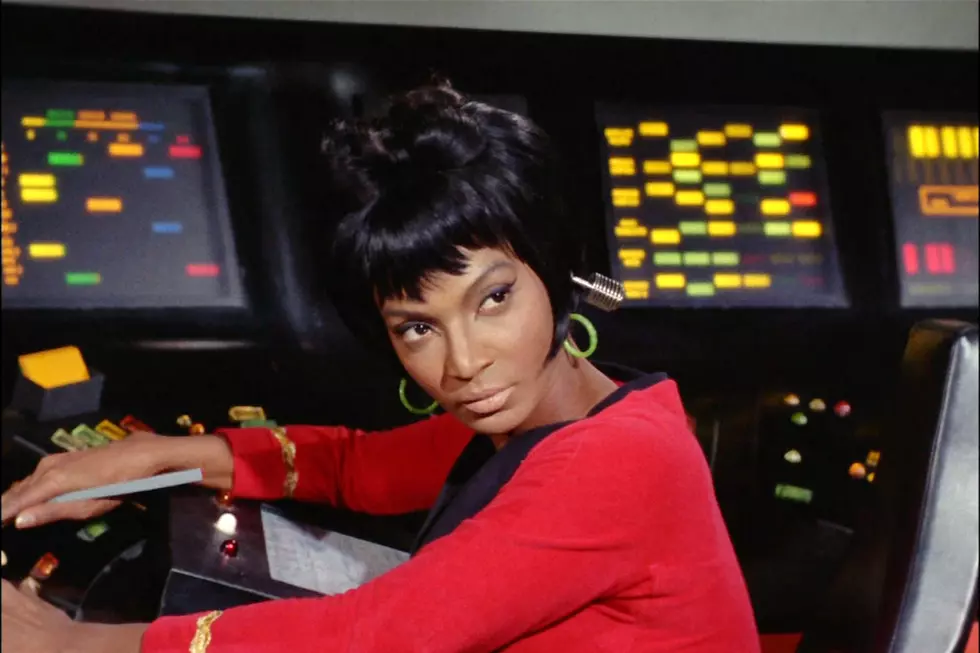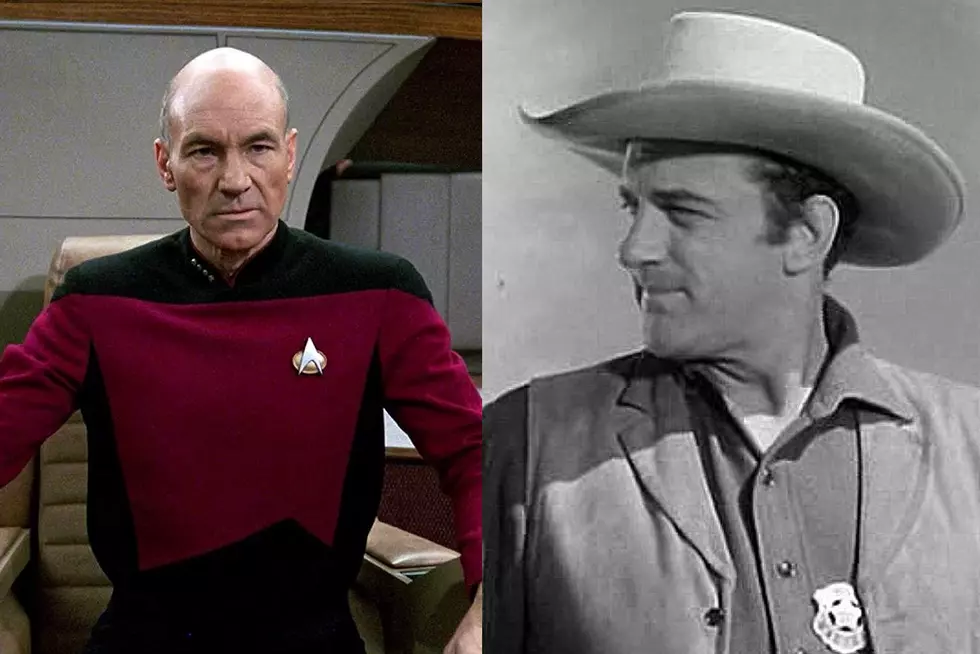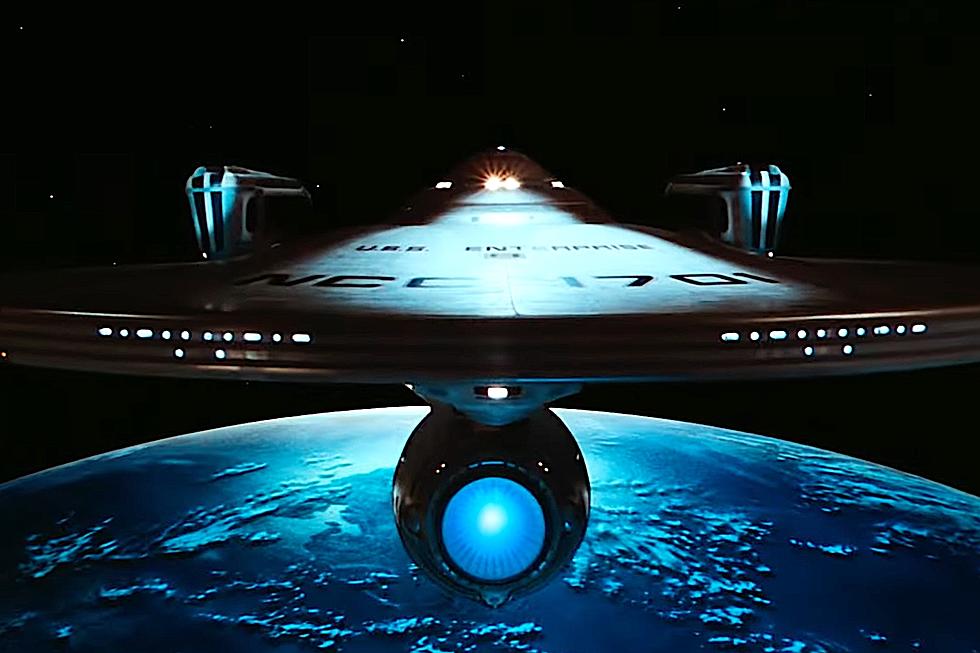
Review: ‘Star Trek: Discovery’ Is Good Sci-Fi, But Is It Good ‘Star Trek’?
Warning – FULL SPOILERS for Sunday’s “The Vulcan Hello” and “Battle at the Binary Stars”:
Like J.J Abrams before me, I must do the unthinkable: Compare Star Trek to Star Wars.
Both sets of fans seen their franchise reborn in the last decade. For Star Wars, that meant tossing out decades of canon to focus on new cinematic ventures, while Abrams’ Trek similarly sought to re-brand as action-adventure unburdened by continuity. CBS’ Star Trek: Discovery seems a little uncertain which of those paths to take, and it tries to play within its own canon while emphasizing action and visual excitement. So far, the end result is some particularly polished sci-fi, but one whose lofty ambitions aren’t well-defined within a two-hour premiere.
Some of that overloaded premise is CBS’ own doing. The network caused a minor a stir embargoing advance reviews, and Discovery doesn’t earn that level of secrecy with any major swerves that weren’t already laid out in the show’s trailers. And in lieu fleshing out any one cast or premise, “The Vulcan Hello” and “Battle at the Binary Stars” do their most interesting work establishing a fragmented Klingon Empire, interwoven with the tragic past of Sonequa Martin-Green’s Michael Burnham. She gets a strong spotlight in a character-driven story, but one that devotes significant running time to characters who won't actually live with beyond the two-hour pilot.
Martin-Green does well defining Burnham as a child of two worlds. We only see glimpses of her Vulcan upbringing and the tragedy that preceded it, but the character’s initial arrival on the Shenzhou seven years prior offers marked contrast to her more relaxed, human demeanor in the present. That’s in no small part thanks to Michelle Yeoh’s authoritative but witty Captain Georgiou, and Doug Jones’ cowardly Lieutenant Saru. Neither Jason Isaacs’ Captain Lorca nor the title ship appeared in Sunday’s premiere; the next-most memorable presence is James Frain’s Sarek, whose stern wisdom pushes Michael toward her least human instincts.
At its most thoughtful, Discovery probes nationalist ideals of a Klingon empire struggling to define itself. That’s something a united Federation has trouble processing while they try to distinguish between lines of race and culture, to say nothing of Michael’s Vulcan insight putting her at odds with Starfleet’s peacekeeping ideals. It’s the kind of potent political quagmire that Star Trek mines much more thoroughly than Star Wars. Klingons have often served as changing allegory for the franchise; so far, though, Discovery appears to view culture wars as a pretext for action scenes rather than an opportunity for discourse.
It's telling perhaps that the first half of Discovery’s premiere (the first hour debuted on CBS, the second on their All Access streaming platform) doesn’t offer any real sense of Discovery's ongoing story, as CBS’ foremost interest lies with hooking subscribers on the new service. Still, while it’s everything a competent sci-fi story should be, it’s only recognizably Star Trek in the smaller moments between laser light shows. Discovery wants a place among the zeitgeist of event series, but it doesn’t seem to grasp how its title alone belies the longevity of characters like Captain Georgiou, or Burnham’s role on her ship. Both Yeoh and Georgiou deserve more than becoming the Trek version of Ned Stark.
Like Star Wars, Trek has existed long enough to mean different things to different fans. Certainly there’s progress true to the spirit of Trek here, thanks by two female leads of color, but CBS – as always – seems more worried about the show’s broader appeal than the nuance that made Star Trek great in the first place. It's the same reason the new (but oddly-dated) Trek approximation The Orville strikes a chord with fans; emphasizing individual characters and moral conflict over stories beholden to decades of continuity. Discovery may not feel like the Trek we're used to, by any other name, it would be considered incredibly well-done science-fiction.
AND ANOTHER THING …
- Discovery does a fine job of re-contextualizing the Klingons as a unique threat without breaking too much continuity, but I do wonder why the franchise can’t seem to settle on any one visual aesthetic for these guys.
- Did I miss why Captain Georgiou shrugged off a nerve pinch after a few minutes, or was that because of Burnham’s human strength?
Star Trek: Discovery will continue next Sunday with “Context Is for Kings,” airing at 8:30 P.M. on CBS All-Access.
More From Kicker 102.5










